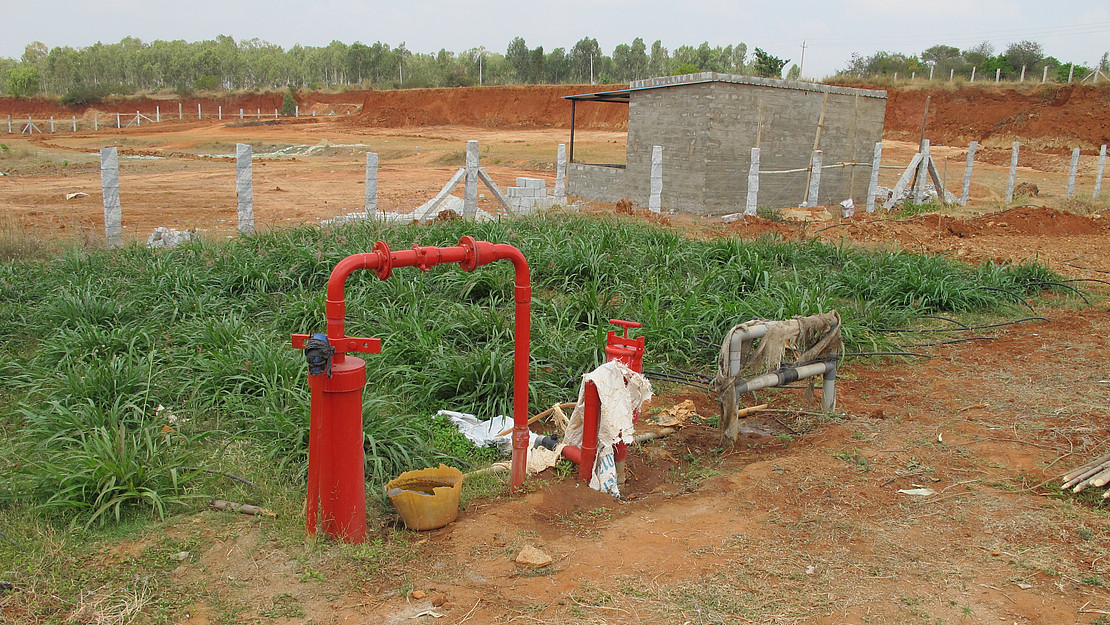This page contains automatically translated content.
Bangalore: Deeper wells do not always provide more water
 Image: Matthias Gaßmann.
Image: Matthias Gaßmann."Our data confirm that more groundwater is being extracted here than can be regenerated in the long term," sums up Prof. Dr. Matthias Gaßmann, Head of the Department of Hydrology and Material Balance at the University of Kassel. According to the study, deeper drilling for wells only increases the borehole volume and does not open up new water sources. "For sustainable groundwater management, better monitoring of the groundwater level as well as the use of the water would be necessary. Our case study could be a basis for managing groundwater as a resource in Bangalore more sustainably in the future and ensuring supply," Gaßmann said.
Bangalore is located on the Deccan Plateau in southern India. Wells up to 430 meters deep reach into the groundwater-bearing rock strata (aquifers) beneath the city. The researchers were able to reconstruct the development of the groundwater level over several decades using various investigation methods and divide the development of the well depth into three phases: Before 2000, wells in peri-urban regions, i.e., rural-urban transition areas, were on average 120m deep. In the following decade (2000-2010), deep wells increased massively, so that by the end of the decade the average depth was about 250m. In 2010 to 2020, the depth increased less, with no more apparent increase in the southern and urban areas due to improved infrastructure.
To further investigate the processes of groundwater regeneration, the researchers evaluated video footage from 54 well pits in the Electronic City area, in an industrial, peri-urban land use cluster of the city. This allowed them to confirm that the water level in most wells is determined solely by fractures in the surrounding rock, not by the well depth itself. To trace the pathways of groundwater, the researchers additionally examined the age and origin of the water in the wells and in the catchment area using what are known as isotopic signatures. The results indicate that the currently pumped groundwater in the Bangalore region is partially regenerating due to precipitation. "This is a good sign, as it means that sustainable groundwater management is possible, even though this has not been implemented in recent decades," adds Prof. Gaßmann.
The case study was carried out as part of the DFG research group "Socio-ecological Systems in Indian Urban-Rural Gradients: Functions, Scales and Transitional Dynamics." The Indo-German research network examines rural-urban transformations using Bangalore as an example and analyzes the change in agrarian, ecological and social systems. On the German side, the network, which started in 2016, is supported by the universities of Göttingen and Kassel.
Publication: https://doi.org/10.3390/su132112149
Contact:
Prof. Dr. Matthias Gaßmann
Head of Department Hydrology and Material Balance
Phone: +49 561 804-3462
Email: gassmann[at]uni-kassel[dot]de
Press contact:
Sebastian Mense
University of Kassel
Communication, Press and Public Relations
Phone: +49 561 804-1961
E-mail: presse[at]uni-kassel[dot]de